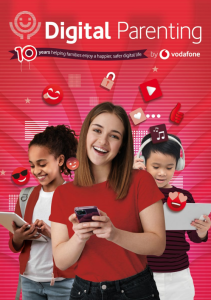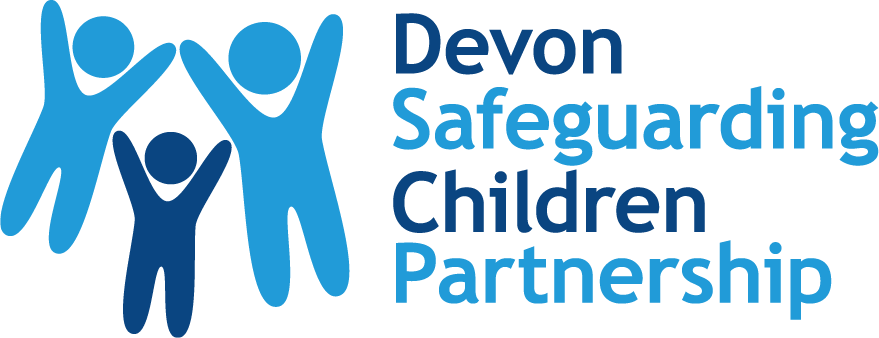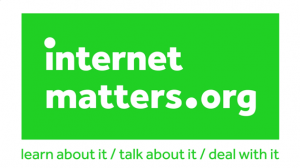The Learn to Live Federation is committed to safeguarding and promoting the welfare of children and young people, and expects everyone to share this commitment.
Safeguarding and promoting the welfare of children is defined as:
- protecting children from maltreatment;
- preventing impairment of children’s mental and physical health or development;
- ensuring that children grow up in circumstances consistent with the provision of safe and effective care; and
- taking action to enable all children to have the best outcomes.
At each of our sites, we have a Safeguarding Team consisting of a Designated Safeguarding Lead and Deputy Designated Safeguarding Leads. This team act upon and rigorously follow up safeguarding concerns or any disclosures made. This includes liaison with external agencies such as MASH (Multi Agency Safeguarding Hub) and LADO (Local Authority Designated Officer). The Safeguarding Team are also responsible for ensuring all our staff are fully trained in the latest safeguarding guidance which includes peer-on-peer abuse.
If you have a safeguarding concern, you should contact us and ask to speak to the Designated Safeguarding Lead or one of our Deputy Designated Safeguarding Leads. It is also important to be aware of child protection and safeguarding issues regarding photographing or filming a child or young person. The potential for misuse of images can be reduced if images are not shared from home to school. If you wish to notify us of a mark or bruise which has not yet been reported or explained, please do not photograph the injury. Instead, ask for an opportunity to discuss this concern with us. Details on how to contact Ellen Tinkham’s Designated Safeguarding team is below.
SAFEGUARDING IS EVERYBODY’S RESPONSIBILITY
The Federation’s Designated Safeguarding leads are:
Ellen Tinkham School (Hollow Lane) – Katy Bradley
Deputies – Robyn Emmerson, Jo Ellis, Nikki Burroughs
Telephone: 01392 467168
Ellen Tinkham College (Wayside Crescent) – Monika Davis
Deputies – Emily Langley, Jo Ellis, Nikki Burroughs
Telephone: 01392 482533
Bidwell Brook School – Kate Bromage
Deputies – Marie Barrett, Tom Cook, Danielle Prowse, Nikki Burroughs
Telephone: 01803 864120
Policies:
Click here to view the relevant policies on the Policies & Key Documents page.
Safeguarding referrals:
If you are concerned about the safety of a child in Devon and want to speak to someone, or if you are a child worried about your own safety, contact our Multi-Agency Safeguarding Hub (MASH) on 0345 155 1071 or email mashsecure@devon.gov.uk and give as much information as you can.
If a child is at immediate risk contact the police on 999.
Safeguarding Agencies and Support:
Children in Devon are best safeguarded when key agencies work together effectively. The Devon Safeguarding Children Partnership is designed to help make this happen.
It is our aim to make sure that children and families can get the right support, in the right place at the right time.
![]() We provide services across England to help give children and young people the support they need to thrive.
We provide services across England to help give children and young people the support they need to thrive.
We have service centres in London, the South West, South East, Central and North of England. We work with children, families and professionals. We support parents and families in caring for their children and provide therapeutic assistance to help children move on from abuse.
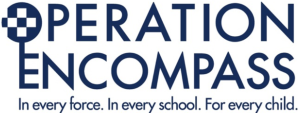 Operation Encompass is a police and education early information safeguarding partnership enabling schools to offer immediate support to children experiencing domestic abuse.
Operation Encompass is a police and education early information safeguarding partnership enabling schools to offer immediate support to children experiencing domestic abuse.
Operation Encompass ensures that there is a simple telephone call or notification to a school’s trained Designated Safeguarding Lead /Officer (known as key Adult) prior to the start of the next school day after an incident of police attended domestic abuse where there are children related to either of the adult parties involved.
Information is shared with a school’s Key Adult (Designated Safeguarding Lead or Officer) prior to the start of the next school day after officers have attended a domestic abuse incident. This sharing of information enables appropriate support to be given, dependent upon the needs and wishes of the child.
 CEOP is a law enforcement agency and is here to help keep children and young people safe from sexual abuse and grooming online. We help thousands of children and young people every year who have been in a similar situation to you. CEOP are unable to respond to reports about bullying, fake accounts or account hacking.
CEOP is a law enforcement agency and is here to help keep children and young people safe from sexual abuse and grooming online. We help thousands of children and young people every year who have been in a similar situation to you. CEOP are unable to respond to reports about bullying, fake accounts or account hacking.
We are here to help and give you advice, and you can make a report directly to us if something has happened online which has made you feel unsafe, scared or worried. This might be from someone you know in real life, or someone you have only ever met online.
 Domestic abuse comes in many forms and often people struggle to understand if what they are experiencing is actually abuse. People often believe it must involve physical violence; however, it can incorporate a range of behaviours that can be just as frightening and isolating as physical harm. Domestic abuse can be present in any intimate or familial relationship. 1 in 4 people experience abuse in their lifetime . If you have any concerns about domestic violence or wish to seek help, you can contact Fear Less.
Domestic abuse comes in many forms and often people struggle to understand if what they are experiencing is actually abuse. People often believe it must involve physical violence; however, it can incorporate a range of behaviours that can be just as frightening and isolating as physical harm. Domestic abuse can be present in any intimate or familial relationship. 1 in 4 people experience abuse in their lifetime . If you have any concerns about domestic violence or wish to seek help, you can contact Fear Less.
E-Safety
New technologies have become integral to the lives of children and young people in today’s society. The internet and other digital and information technologies are powerful tools, which open up new opportunities for everyone. Electronic communication helps teachers and students learn from each other. These technologies can stimulate discussion, promote creativity and increase awareness of context to promote effective learning. Children and young people should have an entitlement to safe internet access at all times. The use of these exciting and innovative tools in school and at home has been shown to raise educational standards and promote pupil / student achievement. However, the use of these new technologies can put young people at risk within and outside the school. Some of the dangers they may face include:
- Access to illegal, harmful or inappropriate images or other content.
- Unauthorised access to / loss of / sharing of personal information.
- The risk of being subject to grooming by those with whom they make contact on the internet.
- The sharing / distribution of personal images without an individual’s consent or knowledge.
- Inappropriate communication / contact with others, including strangers.
- Cyber-bullying
- Access to unsuitable video / internet games.
- An inability to evaluate the quality, accuracy and relevance of information on the internet.
- Plagiarism and copyright infringement.
- Illegal downloading of music or video files.
- The potential for excessive use which may impact on the social and emotional development and learning on the young person.
Below are some links where you can find the latest esafety tips, advice and resources to help children and young people stay safe online:
Parental Controls & Internet Filtering
Did you know that you can set up filters to help block access to inappropriate content / websites on any device that connects to your home WiFi? If your Internet Service is with any of the providers shown below then click on your provider to find out more about how you can enable internet filters within your home. If your internet connection is provided by another company then they should also offer an option for enabling parental control filter settings – visit your internet service provider’s website or phone them to find out how you can enable parental controls in your home:
 |
 |
 |
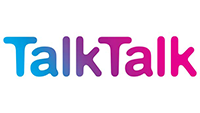 |
 |
|---|
More information about Parental Controls and how to protect children from viewing inappropriate content can be found by following this link.
Gaming consoles & Platforms
If your child is a keen gamer and uses a range of consoles or devices to play the latest games, take a look at Internet Matters website which has a list of consoles, platforms and gaming apps parental control how-to guides to get up to speed on how to set the right level of protection to give them a fun and safe experience. Click here.
Vodafone’s Digital Parenting magazine
Vodafone’s Digital Parenting magazine contains lots of useful guides on ensuring the devices your child or young person accesses are appropriately set up, including everything from Parental Controls on a desktop computer or tablet to setting up Safesearch on Google and YouTube. We’ve provided a downloadable copy below (click on the picture to view), but you can also navigate to their website by clicking here for their most up-to-date support.